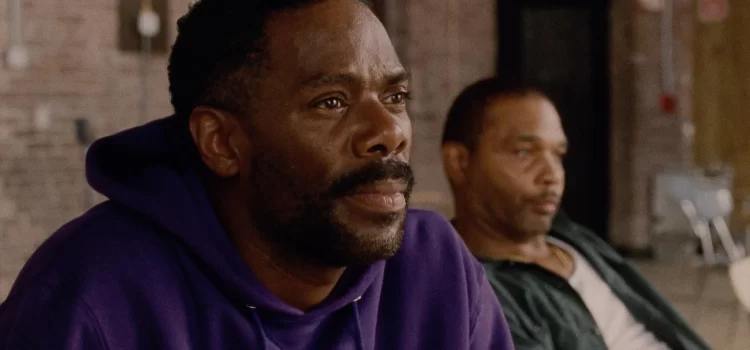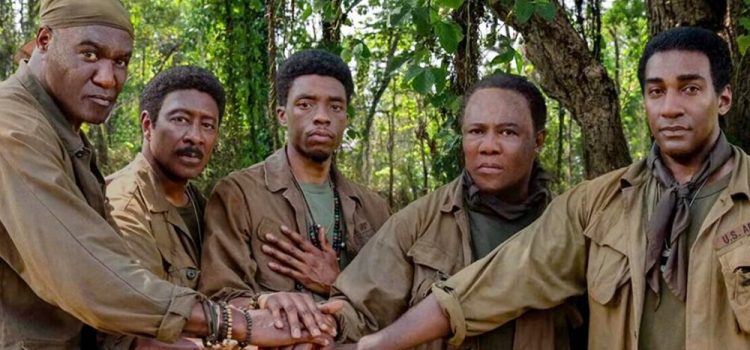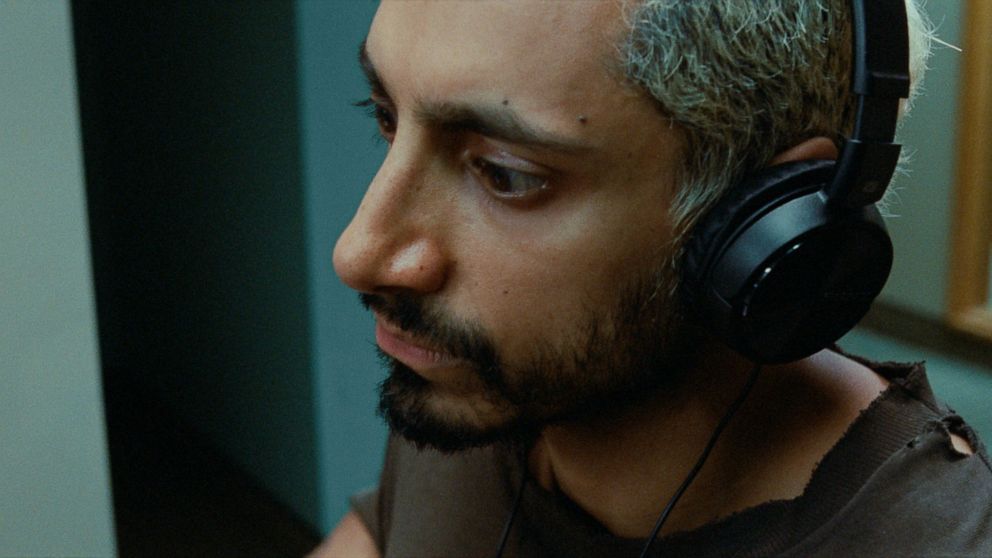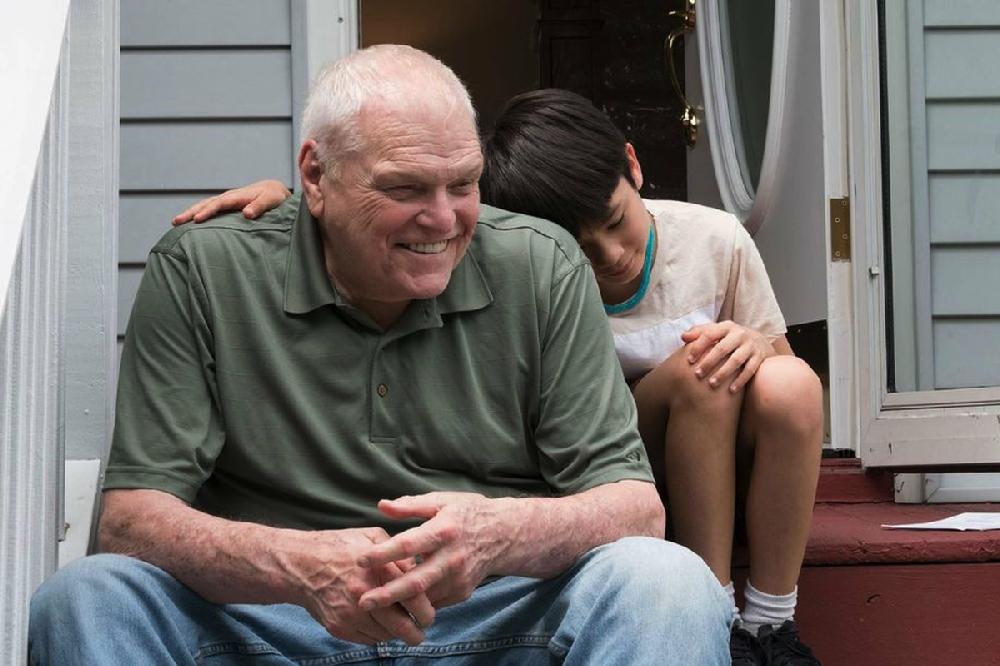By Alex McPherson
With an impressive ensemble cast and an emotionally satisfying narrative, director Greg Kwedar’s “Sing Sing” is an earnest, occasionally programmatic tribute to the power of art, community, and resilience that foregrounds the humanity of the incarcerated and spotlights a program that deserves center-stage.
Kwedar’s film, shot across multiple decommissioned correctional facilities, takes place at the titular Sing Sing prison in New York, and revolves around the prison’s Rehabilitation Through the Arts program (RTA). The RTA gives inmates opportunities to express themselves artistically and grow personally, most often by performing theater (ranging from the classics to their own creations) to an audience of their peers and family, directed by the shaggy-haired Brent Buell (Paul Raci).
As the group reflects, practices, and performs together, the program offers a chance to get a brief respite from the claustrophobia of their confinement.
We primarily follow John “Divine G” Whitfield (Colman Domingo), a wise, patient, and determined “leader” of the RTA with a history as an actor who, imprisoned for a crime he’s trying to prove he didn’t commit, splits his time writing novels and plays with preparing for an upcoming clemency hearing.
Divine G radiates warmth and generosity but battles his own demons. He finds an essential element of escapism and fulfillment in the group, whose members are largely portrayed by actual alums of the RTA, playing themselves to powerful effect.
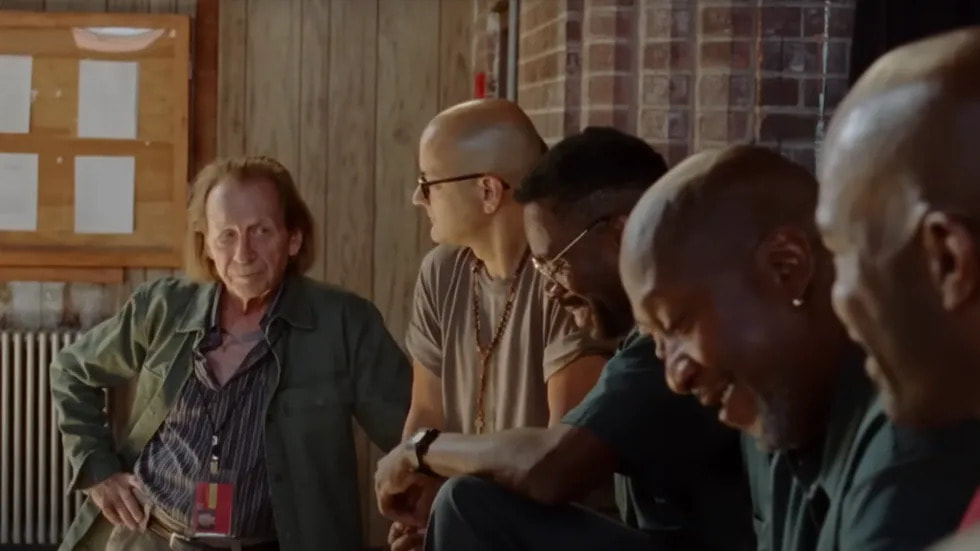
While scouting for talent and thinking of ideas for their new production — which ends up being a time-traveling epic featuring mummies, Hamlet, and Freddy Krueger — Divine G and his close friend Mike Mike (Sean San Jose) convince a live-wire inmate named Divine Eye (Clarence “Divine Eye” Maclin) to join the program.
Divine Eye, who has a concerning need to assert dominance and also casually quotes “King Lear,” adds a potentially dangerous element to the group, grappling with his deep-seated insecurities and butting heads with Divine G, who’s miffed when Divine Eye is cast as Hamlet in the new play. As the tight-knit group continues their preparations, Divine G and Divine Eye develop a friendship, teaching each other lessons about life and the power of art to persevere amidst grim circumstances.
Indeed, “Sing Sing” is a gripping experience — depicting a real-life program that changes lives, brought to life by performances that bring raw vulnerability to the table. Kwedar’s film emphasizes the ways that creative outlets can move, transport, and give meaning, without reducing its subjects to simplistic archetypes.
Perhaps most importantly of all, “Sing Sing” empathetically depicts those that society all-too-often defines by their worst instincts. It recognizes its subjects as flawed, but real individuals not seeking to be absolved for their crimes, but to reclaim their humanity within a dehumanizing system.
Based on John H. Richardson’s Esquire article “The Sing Sing Follies” as well as the real-life Divine G and Divine Eye’s experiences in the program, “Sing Sing” is poignant without becoming maudlin, and hopeful without sugarcoating the realities of prison life. Kwedar’s direction radiates authenticity, both emotional and literal, adopting a documentary-esque approach that (for the most part) helps scenes flow organically and with a sense of spontaneity.
Kwedar and cinematographer Pat Scola give ample time for scenes to breathe, observing RTA members as they reflect on their lives and hone their craft together in a manner that’s cinematic without being showy, aided by a moody score from Bryce Dessner. Given that many of the people we see on-screen are actual alums with the program, each performance in “Sing Sing” is memorable, no matter how little time we spend with anyone besides Divine G and Divine Eye. Their pain, yearning, and catharsis is vividly conveyed.
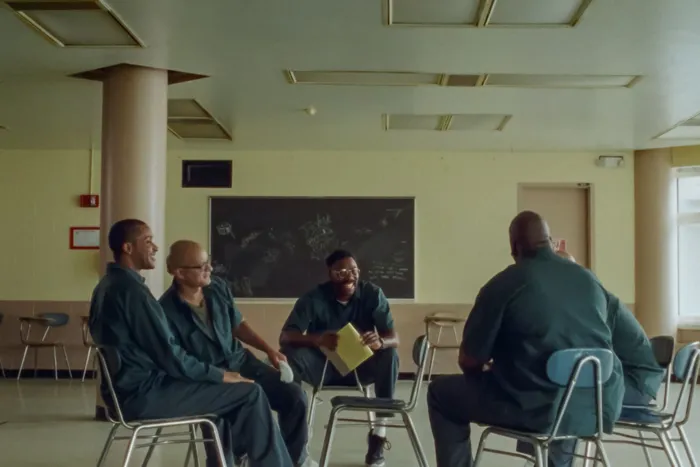
Through Kwedar’s direction, we feel the claustrophobia, the pressure of always being watched, the sensation of time lost, and the potential for unexpected violence. In most cases, though, “Sing Sing” refuses to simplify, rendering its ideas through exceptional performances and a naturalistic screenplay by Kwedar and co-writer Clint Bentley that’s filled with drama, melancholy, and unexpected humor. It only sometimes sacrifices nuance to hammer home its main points.
Domingo is typically strong here, far more understated than his Oscar-nominated turn in last year’s “Rustin.” Divine G has an assured confidence that belies inner fear and rage at the system. He finds the RTA a sanctuary from the mounting pressure of his clemency hearing and the perils of prison life.
Domingo poignantly conveys Divine G’s psychological layers, often without voicing them outright, as Divine G’s façade gradually cracks and reforms; the RTA community helps him feel whole again even as reality seeks to hold him down.
But the real star of “Sing Sing” is Maclin, whose performance as Divine Eye is downright masterful, alternating between uneasy and compassionate. Divine Eye’s gradual shift from fatalism is a familiar arc, for sure, but Maclin’s performance really sells the emotions on display, giving even the character’s formulaic moments necessary weight.
Divine Eye’s burgeoning friendship with Divine G provides much of the film’s throughline. It never becomes sappy, and it evolves convincingly over the runtime. Divine G sees part of himself reflected in Divine Eye, and vice versa, as they grapple with that elusive feeling that is hope. Maclin stands tall alongside Domingo, worthy of serious awards consideration by year’s end.
“Sing Sing” is not immune from cliché in some respects, especially regarding some “climactic” moments that, while crowd-pleasing, come off as conventional in retrospect. A heavy-handed line of dialogue will occasionally rear its head, too, which feels out of place with the otherwise tight screenplay.
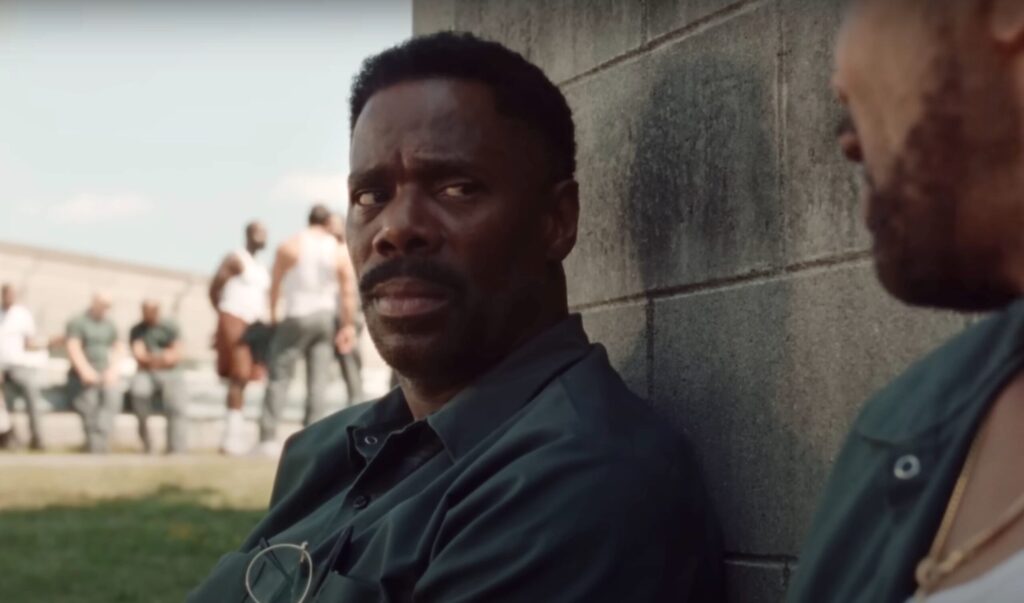
These quibbles do not detract much from the film’s impact overall, however, and “Sing Sing” is unquestionably worth watching, a timely reminder of the unifying power of art and community, and the strength of the human spirit.
“Sing Sing” is a 2024 drama directed by Greg Kwedar and starring Colman Domingo, Paul Raci, Sean San Jose and Clarence “Divine Eye” Maclin. It is rated R for language throughout, and is 1 hour, 47 minutes. It opened in limited theatres on Aug. 16, and is currently expanding into others, including Chase Park Plaza Cinema and AMC Creve Coeur Cine Aug. 23 and HI-Pointe Cinema Sept. 6. Alex’s Grade: A-.
Alex McPherson is an unabashed pop culture nerd and a member of the St. Louis Film Critics Association.

